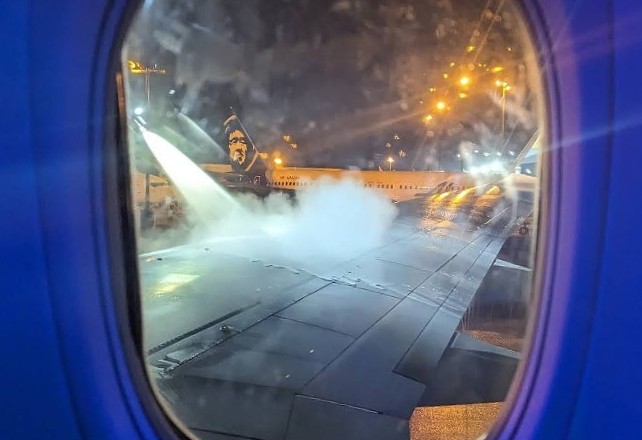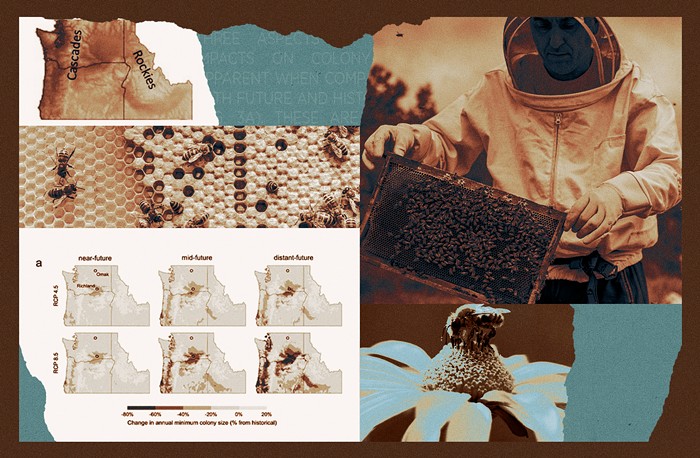
The snows that fall on Mount Index melt to form Lake Serene, a crystal blue jewel situated in the Central Cascades. A creek that flows from the lake gathers strength as it winds a couple thousand feet down the mountain before plunging over Bridal Veil Falls.
In order to see these priceless natural wonders, you need to take the Lake Serene trail, which is a glory in its own right. But the trail is currently closed to accommodate a scheduled year of logging that threatens to clearcut the forests bordering the trail, one quarter-mile of which runs through private land owned by Weyerhaeuser. In the worst case scenario, Weyerhaeuser will build two roads across the mountain and then log the second-growth trees inbetween. A large portion of the trail will go bald and brown, and the whole thing will look like a FernGully massacre. But it doesn't have to be that way.
A conservation group called Forterra wants to buy the land from the timber company and save the trail forever, but they need your help. And they need it soon.

According to Charlie Raines, director of forest conversation at Forterra, Weyerhaeuser has agreed to sell the 190-acre property at market rate, which runs about $800,000. The company won't sell just the acreage through which the trail traverses because it doesn't make much sense to do so. The company would need to punch a road through that section anyway to access the trees on the other side, and conservationists will get a better deal on the land if they can buy the whole parcel.
Snohomish County has already put up $405,000, and Froterra is asking for $275,000 by October 30th of this year to fill the funding gap. A donor has agreed to match up to $75,000, and Forterra's raised $58,000 so far, which means we really only have to scrounge up $142,000 in the coming weeks to save the trees.

If Forterra can raise the money to buy the property, Weyerhaeuser will still log part of it, but the contract keeps them from cutting forest within 500 ft of the trail. After they've "harvested" their trees, they'll plant ferns and vine maple and then leave. After two or three years, the forest will be restored and thus free from the fear of the buzzsaw.
Raines says that saving Lake Serene will give Forterra clout with Weyerhaeuser, which will in turn buy them more time to purchase other land from the timber company. They have designs, for instance, on Maloney Creek, a 320-acre parcel that sits in a valley above the town of Skykomish. Buying that land would allow them to create a mountain bike trail and a walking trial up to a peak, and, perhaps more importantly, it'd help them preserve a watershed that feeds the city below. The other project is Windy Ridge, a 648-acre swath of old growth forest, meadows, lakes, and rocky pinnacles near Stevens Pass that Raines calls "the largest piece of purely wild land in private holding in the state of Washington," so far as he knows.

This whole thing wouldn't even be a problem if it weren't for—you guessed it—Congress's inaction. To understand this point, it helps to have a little history.
In the 1860s, the United States government wanted to connect the coasts (and to further dispossess the Native Americans in the process). In order to accomplish those goals, Congress heavily subsidized transcontinental rail. In 1864, Congress made a deal with Northern Pacific Railroad Company to connect the Great Lakes with the Puget Sound. If the railroad company would build a railroad from Duluth, Minnesota, to the Sound, the U.S. would grant them 60 million acres along the way. To prevent a monopoly, Congress stipulated that the company could only claim 40 miles north of the track and 40 miles south of the track every other square mile. This deal created a checkerboard pattern of public and private land across the west.

In the midwest, towns sprouted up around train depots as the railroad sold land to farmers. In the mountains of the Pacific Northwest, the farming was no good, so the railroad sold the land to loggers. Friedrich Weyerhäuser bought the land the Lake Serene trail runs through today in the early 1900s, and his company still owns this "inholding," a little square of private land inbetween a lot of squares of public land.
Since 1967, the U.S. Forest Service has used the Land and Water Conservation Fund, which comes from offshore oil royalties, to acquire these inholdings. But for the last 20 years or so, Raines says, Congress has only appropriated a fraction of the money they owe to the Forest Service.
If Congress would simply give the Forest Service the money they promised to give it, conservation groups like Forterra wouldn't be asking people for cash. Alas, like everything else these days, if we want to enjoy trees that grow out of the ground and water that falls from the sky and the good-god glory of the Pacific Northwest, we have to pay for it our own damn selves.
If you're not already strapped from giving all you can to Puerto Rico, please consider tossing in a few bucks to preserve the land forever.
*Update:* If you want to learn more and win cool prizes, Forterra is hosting a happy hour at Fremont Brewing on October 24th from 6:00 to 8:00 p.m.














